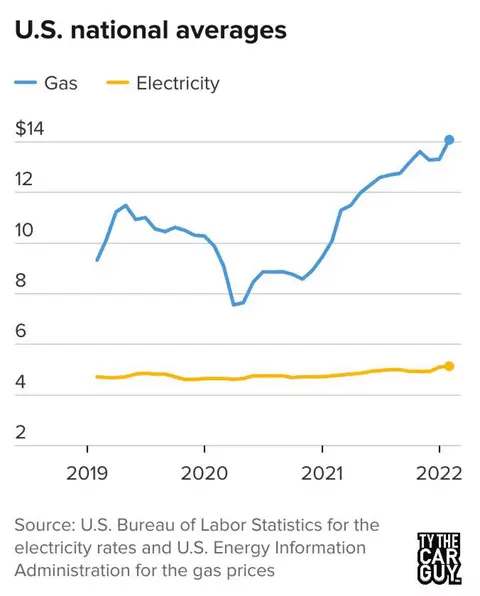Many people don’t know their credit score until it’s too late.
You’re ready to buy a car or house or refinance an existing home mortgage. Only then do you realize that a bad credit score will cost you money, if it doesn’t completely tank the deal.
The surprise of a bad credit score can sour your best-laid plans.
Think of a credit score as a report card for your finances. Like grades, some factors influence your score more than others. At its most basic level the score measures how responsibly you’ve borrowed and repaid money. It’s an official mark of risk and reliability.
Your credit score compares a variety of financial factors, compiling the range of debts and earnings. Scores range from 300 to 850. Higher scores typically mean easier loan approvals and lower interest rates.
A “good” credit score usually is 750 or higher, but credit bureaus (companies that monitor scores) and lenders apply their own more detailed analyses. Here's how the Big 3 nationwide credit bureaus handle the scoring:
- Experian says that 700 or above generally is good, while 800+ is excellent.
- Equifax breaks it down into more specific categories:
- 580-669, fair (often considered “subprime” borrowers)
- 670-739, good (670+ are considered lower-risk for lenders)
- 740-799, very good
- 800+, excellent
- TransUnion adapts letter grades:
- 300-600, F
- 601-657, D
- 658-719, C
- 720-780, B
- 781-850, A.
3 steps to get a handle on that credit score
1. Order a free credit report.
You can’t make good decisions until you’re armed with the data. Obtaining your free credit report is the first step.
The 3 nationwide credit bureaus referenced above are required to provide you an annual free copy; request yours via annualcreditreport.com.
Reports tend to be updated monthly, so you could stagger your requests from the 3 bureaus throughout the year to better cover the calendar. And if you’ve used all your free requests, you can pay for a copy if you really want it.
Keep in mind that your credit report logs every time a lender requests a copy. So if you’re shopping for a mortgage lender, for instance, try to get all your rate quotes within a week or 2 so that lenders don’t see their competitors’ activity in your report, which could influence their offer.
The Federal Trade Commission (FTC) has more information about these requests, including a warning to avoid imposter sites that try to bait and switch and charge you for this free service.
2. Check your credit report for errors.
While some mistakes won’t hurt your credit, others can have a big impact.
Maybe it’s a misspelled name, or a debt that you’re sure has been repaid. The reporting process depends on the type of error, but in many cases you can tackle it online. The Consumer Finance Protection Bureau can walk you through the steps for disputing an error on your report.
More serious than a simple error is a data breach. Remember that the next time you’re exasperated by all the layers of security as you click or phone your way to your account access. The verification gauntlet helps protect your financial data.
“Today it’s about sophisticated fraud scenarios,” says Heather Winston, assistant director of Financial Advice & Planning for Principal®. “Trying to stay one step ahead of fraudsters is something that every financial services firm is focused on—for good reason.”
Data breaches exposing the financial information of hundreds of millions of account holders are a serious concern for customers and the companies who serve them. The FTC has led lawsuits on behalf of consumers.
The FTC also has more information on identity theft protection.
Winston adds that it can be just as important to scrutinize not only what a firm or retailer does to protect you from data breaches in advance but also how they handle a breach after it happens. The speed and transparency of a business in response to a breach can play just as big a role in protecting your finances.
3. If necessary, boost your credit score with thoughtful—not hasty—changes.
The scare of a bad credit score sometimes causes people to make drastic moves that might not be in their best financial interests. For instance, paying off your credit card quickly and then closing it as emotional retaliation to your score doesn’t necessarily benefit you.
“Having an open line of credit with a larger amount of available borrowing is actually better from a credit-score perspective,” Winston says.
Sort through good and bad debt, she adds. High interest rates on credit cards are worse debt compared to the typical student loan. Good debt has low, fixed interest rates and—in the case of a mortgage—possible tax advantages.
It’s a subtler and more strategic approach than cutting up your cards: Keep the line of credit open for the sake of your score and resist the temptation to abuse it.
Negative credit info can stay on your report for 7 years. More than half your credit score is calculated based on how much and how often you borrow, how long you’ve been doing it, and how frequently you’re opening new lines of credit. A few tips:
- Try not to use more than 25% of your available limit on credit cards.
- Diversify your credit: A mix of credit cards, auto loan, and mortgage is better for your score, for example, than only card debt.
- Having trouble paying debts on time? Reach out to creditors and see if you can adjust due dates to align better with your paycheck, or spread smaller payments throughout the month. Or can you set up an automatic debit option?
Keep checking your credit report at least annually. Knowing your true credit situation—and how to maintain or improve it—can help you head down the right financial path.









